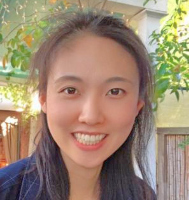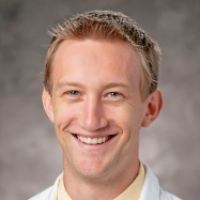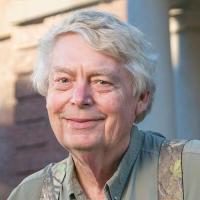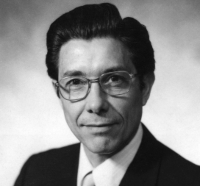Morris, Park, and Veverka named newest Barr-Spach Medicine and Engineering Scholars

Duke medical students, Miranda Morris and Christine Park, and Duke emergency medicine resident, Mitchell Veverka, MD, have been chosen as the newest recipients of the Barr-Spach Medicine and Engineering Scholarship.
The scholarship—administered through Duke MEDx—will support the recipients as they complete master’s degrees from Duke's Pratt School of Engineering. This competitive scholarship provides support toward tuition and fees, and is awarded annually to third-year Duke medical students who have been accepted into the MD-MEng dual degree program.
Engineering has rapidly changed the medical field in recent years, from the types of medical interventions offered to the way medicine is practiced.
“Although one of the most exciting areas with the potential to revolutionize the future of medical care lies at the interface between biomedical engineering and medicine, the tuition cost for this type of multidisciplinary training is often prohibitive,” said Daniel Laskowitz, MD, MHS, Professor and Vice Chair of Neurology and Chair of the Third-Year Research Committee. “The Barr-Spach Scholarship was generously created to address this challenge and provides a unique opportunity for Duke medical students to pursue Master of Engineering degrees.”
The scholarships were created by a grateful student to honor two Duke mentors—biomedical engineering professor and associate professor of pediatrics Roger C. Barr, BS’64, PhD’68, and pediatric cardiologist Madison S. Spach, T’50, MD’54, HS’54-59.
Morris and Park are part of the first cohort to pursue Duke's Artificial Intelligence for Product Innovation Master’s of Engineering as medical students.
Veverka is pursuing a Master of Science in engineering, jointly mentored by Junjie Yao of Biomedical Engineering and Alex Limkakeng of Emergency Medicine.
“MEDx’s support for Mitchell Veverka is creating the kind of research translation we often speak about but rarely achieve,” said Dr. Limkakeng, MD, MHSc, FACEP, who is professor and vice chief of research in Duke's Division of Emergency Medicine. “Through this scholarship, Mitchell will acquire the opportunity to apply his engineering skills directly to the improvement of the practice of medicine. He will serve as a translational bridge to our engineering collaborators in the lab of Dr. Junjie Yao, who is an innovator in photoacoustic imaging. In turn, Mitchell will provide them with a much-needed clinician's perspective on their device design and testing. This is the kind of collaboration that could only occur at Duke via MEDx.”
Veverka’s experience as an emergency medicine resident and Barr-Spach scholar will allow him to bring unique insights to both medicine and engineering settings.
“Training emergency physician-engineering hybrids is central to the commitment of discovery within the Duke Emergency Medicine Residency Program,” said Joshua Broder, MD, Professor, Vice Chief of Education, and Program Director for the Division of Emergency Medicine Residency Program. “These clinician/problem-solvers will have unique insights to recognize, characterize, and address complex clinical dilemmas using multidisciplinary tools. They will also be poised to become leaders in teams bridging between the specialties of medicine and engineering.”
Designed to create a pipeline of MDs-in-training as well as current MDs with interests in engineering, the program seeks to foster innovation in health care and to prepare doctors to think more deeply about developing novel solutions to ultimately help patients.
Meet the 2021-2022 Barr-Spach Scholars
 Miranda Morris | Wilton, Conn.
Miranda Morris | Wilton, Conn.
Miranda Morris is a third-year medical student at the Duke University School of Medicine. Originally from Wilton, Conn., Morris has a double Bachelor of Arts degree from Rice University. Morris is interested in the field of plastic and reconstructive surgery and is hoping to apply her knowledge gained through the MD-MEng dual degree program toward engineering surgical solutions alongside practicing patient care.
Why did you apply to Duke's Master of Engineering degree program?
During my surgical rotations, I was inspired by the synthesis of technical and creative problem-solving within and beyond the operating room. I began investigating tools for pre-operative planning and intraoperative visualization and was fascinated and overwhelmed by all the previous and ongoing endeavors. My growing interests in surgical technologies and their applications evolved into a desire to build my own foundation in engineering for a more comprehensive understanding. I wanted to develop new skills in engineering to inform and enrich my engagement with medical/surgical innovation.
“I have learned so much from my instructors and peers already. The program has helped broaden my perspective beyond my own experiences, allowing me to learn more about other fields and their intersections with medicine. Every student I’ve met has a unique background and skillset that enriches the experience and teamwork.”
Miranda Morris
What excites you most about the intersection of medicine and engineering?
I love the dynamic and collaborative spirit within both fields of medicine and engineering. It’s a privilege to see exciting new developments in both fields firsthand. I recall being blown away when I got to see craniomaxillofacial surgeries in which the plastic surgeons used customized 3D modeling and printing to guide the reconstruction of the jaw and skull. There is boundless creative potential in this intersection.
What are you hoping to learn/gain from this program?
I hope to establish a preliminary foundation in engineering to provide a scaffold to engage thoughtfully with surgical innovation. I would love to apply my interdisciplinary perspective to work towards bridging the gap between the worlds of medicine and technology.
How do you see applying what you’ve learned so far into your practice down the road?
I hope to apply machine learning and AI toward the development and implementation of predictive models for optimizing surgical outcomes. As I proceed with my medical training, I look forward to encountering new questions that I can then investigate alongside interdisciplinary teams.
 Christine Park | Las Vegas, Nev.
Christine Park | Las Vegas, Nev.
Christine Park is a third-year medical student at the Duke University School of Medicine. Originally from Las Vegas, Park received her Bachelor’s degree in Chemistry from Dartmouth College. Park ultimately would like to integrate her passion for machine learning (ML) and artificial intelligence (AI) into her medical training and career.
Why did you apply to Duke's Master of Engineering degree program?
With new scientific findings and innovative technology breaking through so rapidly, I am amazed at our capacity to be inspired by nature and mimic its processes to make discoveries for the benefit of humanity. I am drawn to research because it embraces the spirit of both academics and patient care. All experiments, failures or successes, contribute to the collective efforts of the global scientific community to confirm, redefine, and add to the existing body of knowledge to help us better understand nature. The resulting insights enable us to indirectly treat patients worldwide through the development of new preventative strategies, safer drugs, and novel instruments. Technological advancements ranging from the incorporation of ML and AI in diagnostic models to the application of robotics in surgical procedures show great potential to improve patient care. Although I have been fortunate to apply the technology and models developed with ML and AI, I want to understand the fundamental concepts and build a better foundation of knowledge from the mechanistic and programming aspect. Because I expect and intend to continue to encounter and use ML/AI throughout my career, I thought the MD-MEng dual degree program was perfect for me to understand the steps involved in developing the models from initiation and following the process of integrating them into clinical practice and their impact on patient care workflow.
“Ultimately, I want to be able to use my knowledge I gain from the program to critically think about problems existing currently in health care that could be solved with ML/AI.”
Christine Park
What excites you most about the intersection of medicine and engineering?
While working on different clinical research projects across many disciplines as a medical student at the Duke University School of Medicine, I realized how the paradigm for predictive modeling was shifting to increasingly include machine learning and artificial intelligence. Whereas, projects that I picked up during my first year of medical school mostly used simple univariable regression analysis from which significant variables were then used in multivariable regression analysis. I noticed the transition to using more sophisticated modeling methods as I began to become more involved with projects as I entered my second year. For example, in my dermatology research group, we developed a deep learning model to classify skin lesions as benign versus malignant based on real-world smartphone images with histological ground truth and used re-enforcement learning to assess the utility of clinical and demographic data to improve model performance. I am pursuing similar efforts of integrating ML algorithms and AI in stroke (decision-making for percutaneous endoscopic gastrostomy placement in patients with dysphagia), oncology (use of micro-corticographic signals and impedance for detection of brain tumor boundary, thyroid cancer diagnosis, automated breast segmentation model), spine (robotics in surgery), ophthalmology (prediction of progression of age-related macular degeneration) and orthopedic research (anomaly detection in knee X-rays), among others.
What are you hoping to learn/gain from this program?
I’m hoping to gain the technical skills to integrate ML/AI in healthcare and to facilitate communication with engineers for innovative product development.
How has the program been going so far?
The program has been great so far! I have become more versed in my coding and the class projects have allowed me to apply my skill set to solve real-world problems.
 Mitchell Veverka, MD | Colorado Springs, Colo.
Mitchell Veverka, MD | Colorado Springs, Colo.
Mitchell Veverka, MD, is a third-year emergency medicine resident at Duke University School of Medicine. Originally from Colorado Springs, Colo., Veverka received his Bachelor of Science from the Colorado School of Mines and received his medical degree from Creighton University. Veverka would ultimately like to blend his degrees with a career as an emergency department physician caring for patients with products he has developed through his experience as an engineer.
Why did you apply to Duke's Master of Engineering degree program?
My clinical experience has motivated me to find innovative solutions to the problems I see daily. With my MD-engineering background, I hope to create more effective and patient-centered technologies to improve modern medicine.
“I’ve learned how to observe like an engineer but apply my knowledge as a physician to educate engineers I work with on the logistics of solving problems in the ED waiting room.”
Mitchell Veverka, MD
What excites you most about the intersection of medicine and engineering?
Pathologies prevent us from doing our best. For some, these pathologies are unavoidable and unfair. I find it rewarding that using these incredible technologies, we can give people’s best back to them.
What are you hoping to learn/gain from this program?
My goal is to learn how to take an idea to improve clinical practice and turn it into a reality.
How do you see applying what you’ve learned so far into your practice down the road?
I’m practicing what I’ve learned right now! In Design Health we are developing a solution to improve ED waiting room time and patient care times!
Honoring Mentors
Maynard Ramsey III, M’69, G’75, a grateful student, established the Barr-Spach Medicine and Engineering Scholarship in honor of his Duke mentors, Roger C. Barr and Madison S. Spach, whose careers span the two disciplines.
 Roger C. Barr
Roger C. Barr
He is a professor of biomedical engineering and an associate professor of pediatrics. His research has involved mathematical analysis and computer simulations of electrically active tissue—particularly in and around the heart—and the development of computer systems for simultaneous high-speed recordings of cardiac voltage channels.
 Madison S. Spach
Madison S. Spach
He is a James B. Duke Professor Emeritus of Medicine and professor emeritus of pediatrics in the School of Medicine. A renowned pediatric cardiologist and scientist, his research examined electrophysiology and the mechanisms behind cardiac dysrhythmias. On the faculty from 1960-1996, Spach developed Duke’s training program in pediatric cardiology.

